Getting rid of Bermuda Grass
sandsquid
16 years ago
Related Stories

EDIBLE GARDENSNatural Ways to Get Rid of Weeds in Your Garden
Use these techniques to help prevent the spread of weeds and to learn about your soil
Full Story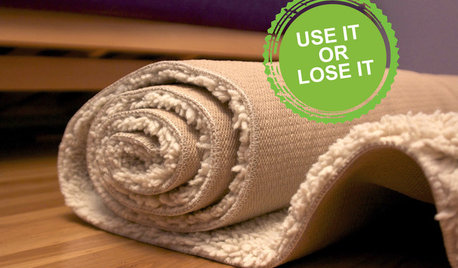
DECORATING GUIDESLose It: 4 Ways to Get Rid of Your Old Carpet
Try one of these earth-friendly tips before stuffing your dingy carpet or rug in the trash
Full Story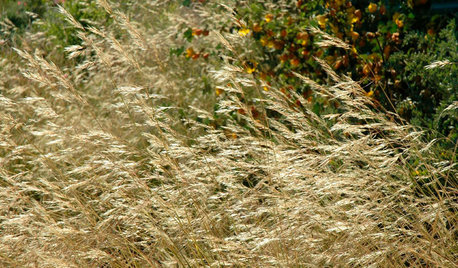
GARDENING GUIDESGreat Design Plant: Purple Needle Grass, California’s State Grass
The long-lived, drought-tolerant Stipa pulchra is as admired for its benefits as for its good looks
Full Story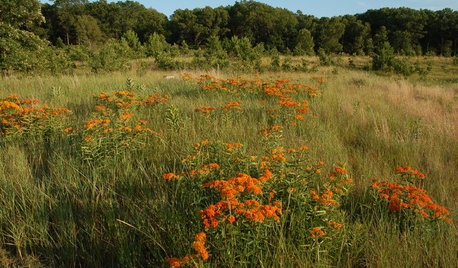
CENTRAL PLAINS NATIVE PLANTS10 Top Grasses for the Central Plains
Low-maintenance grasses provide seasonal interest and wildlife habitat, and aid good design
Full Story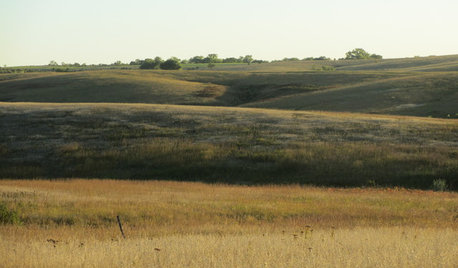
GARDENING GUIDESHow to Get Your Prairie On
Have a field day with your landscape, even if you've got just a few modern containers on a paved path
Full Story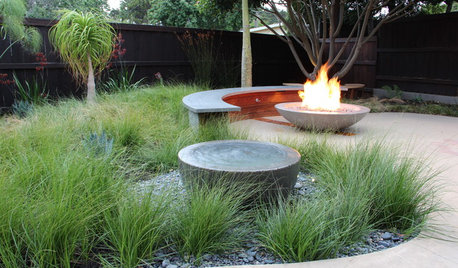
LANDSCAPE DESIGNEnergize Your Landscape With Masses of Grasses
Create year-round interest with waves of attention-getting grasses for all kinds of yards
Full Story
LANDSCAPE DESIGNIs It Time to Consider Fake Grass?
With more realistic-looking options than ever, synthetic turf can be a boon. Find the benefits and an installation how-to here
Full Story
INSPIRING GARDENSInside Houzz: A Waterfront Property Ditches the Grass for a Garden
New drought-tolerant plantings and outdoor gathering spaces help this California backyard take in the view without wasting space or water
Full Story
GARDENING GUIDES5 Great Grasses for a New Lawn
Learn about maintenance, wear tolerance, ideal climate and more for these top turf choices to pick the right one for you
Full Story
LANDSCAPE DESIGNGet Along With Less Lawn — Ideas to Save Water and Effort
Ditch the mower and lower your water bill while creating a feast for the eyes with diverse plantings and gathering places
Full StorySponsored
Custom Craftsmanship & Construction Solutions in Franklin County






brandon7 TN_zone7
brandon7 TN_zone7
Related Professionals
Norfolk Landscape Architects & Landscape Designers · Ballwin Landscape Architects & Landscape Designers · Benbrook Landscape Architects & Landscape Designers · Folsom Landscape Architects & Landscape Designers · Wheeling Landscape Architects & Landscape Designers · Billerica Landscape Contractors · Oak Harbor Landscape Contractors · Plymouth Landscape Contractors · South Lake Tahoe Landscape Contractors · Emeryville Solar Energy Systems · Lomita Solar Energy Systems · Palo Alto Solar Energy Systems · Boone Roofing & Gutters · Cape Coral Roofing & Gutters · Kent Roofing & Gutterspositivemom
arjo_reich
sandsquidOriginal Author
sandyr_mid_tenn6b
brandon7 TN_zone7
bigorangevol
brandon7 TN_zone7
wild_rose
brandon7 TN_zone7
brandon7 TN_zone7
wild_rose
arjo_reich
wild_rose
hellmg
wild_rose